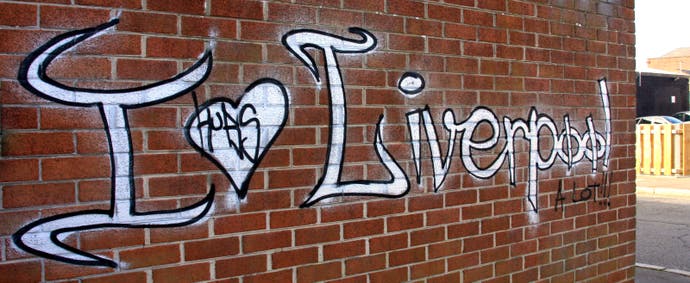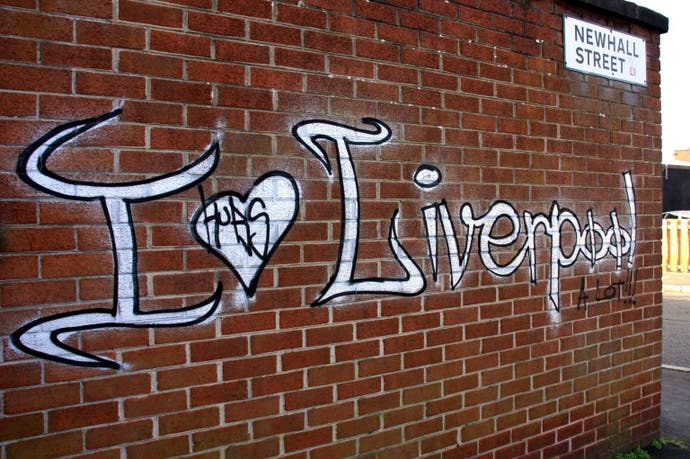Inside the UK's first gaming school
A New Hope.
A school where kids make video games: we used to get the cane for even imagining that when I were a lad. That's why when "the UK's first gaming school" flashes across my inbox, I know I have to get to Liverpool to see it.
A brisk walk down the River Mersey, past the docks, past The Beatles Story, and I'm there. On the surface it's an abandoned old-brick warehouse district. There's a graffitid skate park, a Jamaican hole-in-the-wall caterer. It would make for a great film set. But in the imposing factory of a building over the road lurks The Studio, the school - and it looks as little like a school on the inside as it does on the outside. There's exposed brickwork, pipework and chunky wooden beams. There's a sloping cinema room with big red comfy seats for assemblies and films. There's an arcade machine, free breakfast, even a crypt. Why did my schools have to look like asylums? Even "The Studio" name is cool.
The students file in at 9am and they're a smart lot, all blazers and business attire, all conscientious looking - no trainers instead of shoes, no ties tucked away in hard-man defiance. They're aged between 14 and 19 years old. Today is games day. That's not every day (more on that later), but today they show returning mentors how far they are with their games. And it's impressive stuff.
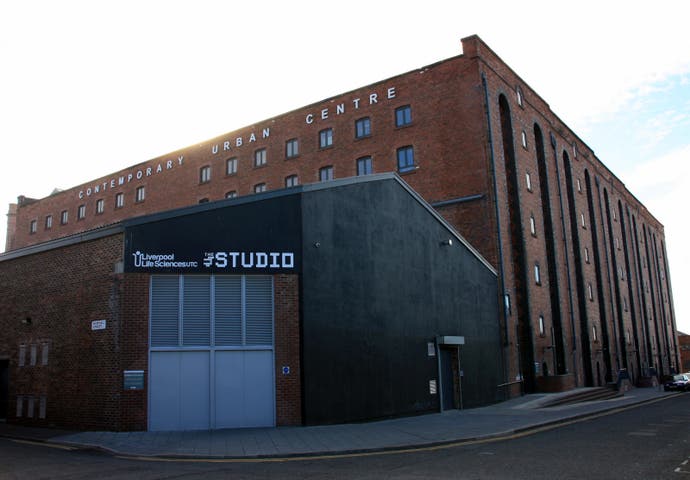
Dan, 15, shows me a project about scanning QR codes to overlay virtual images on things, augmenting your reality. Imagine that underpinning a team-building game where you run around finding and solving clues, or helping museums and historic buildings offer information on your tour...
Another team is having a bash at political commentary with a 3D virtual town, designed to shine a light on the difference between people's social status and wealth. And elsewhere there are projects inspired by popular games like Broforce, Final Fight and Super Smash Bros.
Behind each creation there's a team, and they're divided into disciplines and backed by concept art, design documents, processes and procedures. There's a manager, there are even dedicated web people. And they use the kind of tools indie developers use to make games, such as GameMaker (Gunpoint, Nuclear Throne) and project management application Trello, just like the pros.
I remember dreaming of games in history lessons, doodling behind the teacher's back. What I wouldn't have given for my history teacher to turn that World at War VHS off, sweep away the yellowed textbooks and teach me video games instead. That's what's happening in front of me here: yesterday's daydreams are today's syllabus.
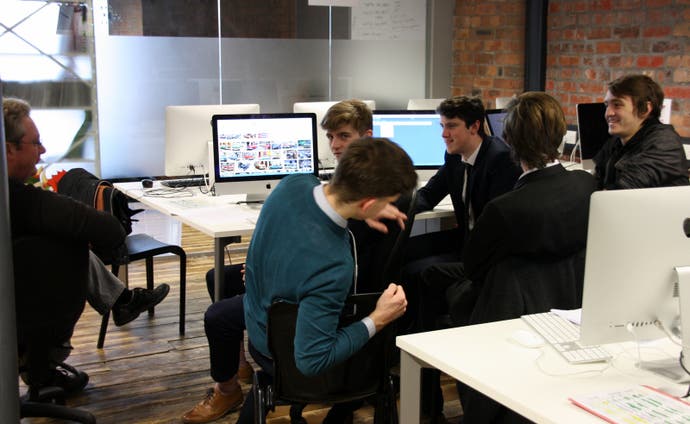
But games aren't the entire syllabus, that's an important distinction to make. The students here learn required GCSE and A-level subjects and take exams just like everyone else. The games stuff, the Creative Media stuff, it's a chunky module lumped on top, offering a Creative Media qualification at the end. But as I come to understand, the qualification isn't really the point.
Cast your mind back a few years. Do you remember Ian Livingstone, that rosy cheeked national gaming treasure, investigating the IT curriculum in the UK and discovering that actually it was crap? "The education system doesn't provide the skills that the UK video games and visual effects industries need," that Next Gen report concluded. I know! I was so shocked I nearly dropped my fish and chips.
That report was one trigger that fired The Studio into life. The other was the launch of Studio Schools in the UK, "a bold new approach to learning". Did you know that Leonardo Da Vinci and his brainy contemporaries once combined work and learning under one roof, teaching while producing works of their own? The UK government thought that was a good idea too. "Our goal is to take this older tradition and apply it to the 21st Century, creating schools in which students progress in academic and vocational subjects through experience of real work."
Studios are funded by the sate, then, rather than private. They're small model schools for no more than 300 students, 14 to 19 years old. Their aim is to bridge the gap between education and work, hence the longer 9am to 5pm hours to synchronise to a typical working day. There are around 44 (open or opening) Studio Schools in the UK, all specialising one way or another.
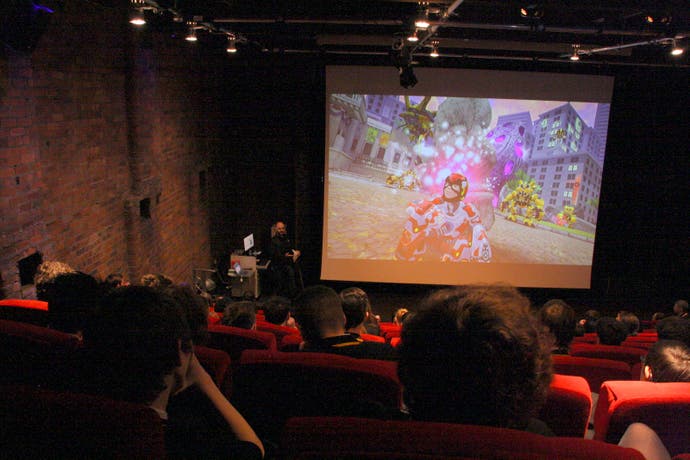
The real magic of The Studio, however, lies in Liverpool itself, a city steeped in gaming history. It was home to the likes of Sony Liverpool (WipEout) and Bizarre Creations (Project Gotham Racing), and it's close enough to Evolution Studios (MotorStorm, DriveClub). The lustre may have dulled in recent years but the talent didn't disappear, the experience didn't vanish. Instead it moved, blew on the wind like seeds, landing where I stand now, in an area called the Baltic Triangle - fertile new soil. There, watered by cheap rent and start-up initiatives, the first shoots of something new sprung up.
Now there are dozens of hungry companies in these retrofitted warehouses, including Lucid Games (Geometry Wars 3), Starship (Playworld Superheroes), MilkyTea (Coffin Dodgers) and many more. There are musicians, artists, film makers, advertisers - a whole smorgasbord of creativity. And everyone knows everyone, because they all hang out in the same cafe - a hangar of a place so rusticool it rents sheds to start-ups - or the same bar. It's a community. That's where the mentors come from. That's even where the chairman of The Studio board comes from, who redesigned the gaming syllabus because it wasn't relevant enough.
Slap bang in the middle is The Studio, the nurtured pipeline of talent for tomorrow. The neighbourhood visits and lectures, invites students over. They sign NDAs to test and influence unfinished games. They do unpaid work and sometimes paid work at weekends. They learn on the job. I hear that one-third of students at The Studio won't go to university because they're going straight into work instead.
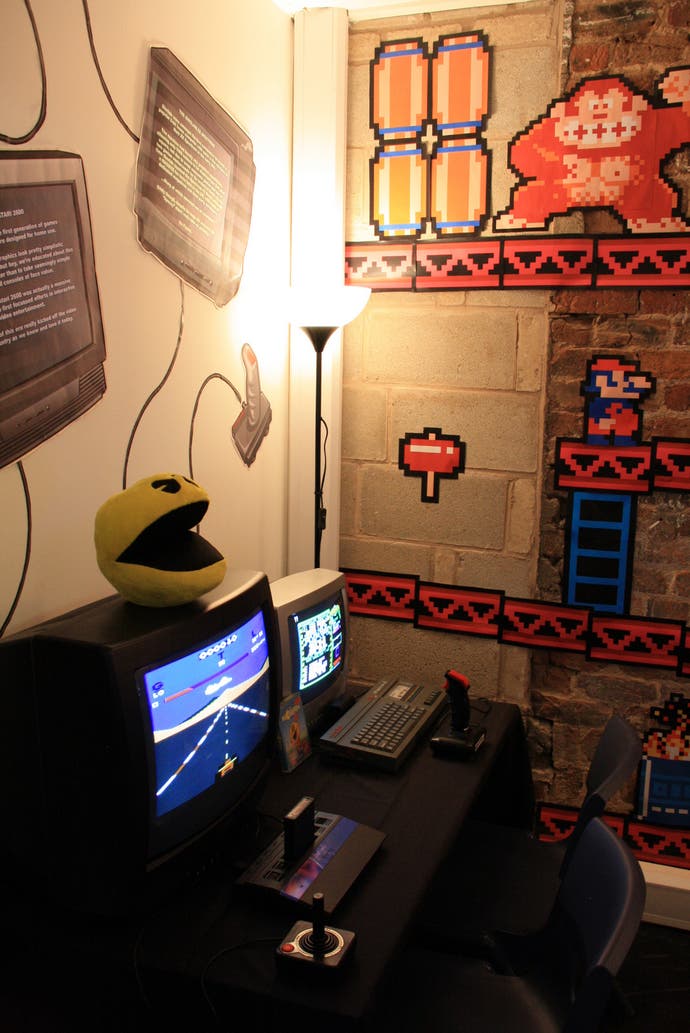
I meet Peter who's 19 and looks like Gordon Grekko in pin-striped shirt and braces. He's softly spoken but very focused - he was half-way through A-levels somewhere else when leaflets for The Studio dropped onto his mat. Seeing the potential for opportunities other than uni he jumped ship. Now he has a plan for a business making games and doing artwork on the side. He has a dream that he's taking a business module specifically this year to realise.
These young adults are bright and they're dedicated. They knock-up projects over the weekend because they find it fun. They grill a lecturer on micro-transactions, they write about controversy-courting indie game Hatred and about feminism. They're switched on. And there's a wonderful collective enthusiasm for learning, no "piss off Sir I'm smoking", or "Bashy's fighting Tucker on the top fields!".
That environment comes from being small, comes from being populated by people who want to be here - so much so they gambled on a school only a year old (now two) with no track record or exam scores. Some students commute an hour a day each way.
But do they like it here? Their answers are unanimous. "It is amazing." "One of the best schools I've been to." "I don't think this course could be any better." Whether or not they were happy at their schools before, they seem to be now. What happens to the atmosphere when word gets out and everyone wants in? The Studio can't be selective, it's not allowed. Maybe teenage inhibitions creep in and the creative bubble pops. But I sincerely hope not.
For The Studio the future could be dazzling. I wholeheartedly expect to bump into these students again, whether in a few years, five years or 10, making waves of their own in our growing gaming world. But the ramifications are larger than that. They ripple out across a revitalised Liverpool creative scene, and they ripple out across an unwieldy education system in the UK, a piercing voice of flexibility, excitement and relevance.
Why oh why didn't schools like The Studio exist when I was young?
